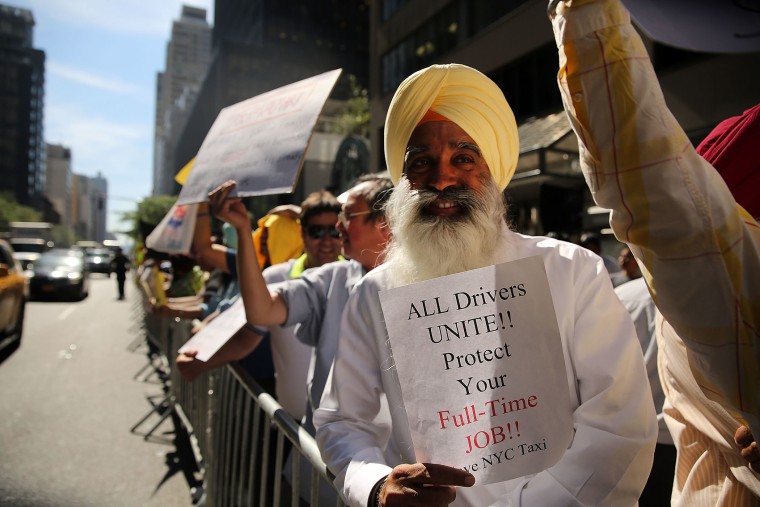The on-demand economy is here -- and workers' rights are under attack. Just last week, a federal judge certified a worker class action against Uber, the app-based ride-hailing service, and a Seattle city council member announced legislation that would allow drivers at companies like Uber to unionize.
While Uber gets most of the attention, the on-demand economy is far broader than one company. Online and app-based companies act as labor brokers for growing numbers of workers who drive, clean, deliver food, do odd jobs and online tasks, often for very little money, no job security, and no labor protections at all.
The growth of the on-demand economy calls for decisive action to safeguard workers’ rights. Last week, the National Employment Law Project issued a roadmap for policymakers concerned about on-demand workers.
Much of this social contract is at risk today for many working people, as wages continue to stagnate and the safety net continues to shred. But it is entirely at risk for the majority of workers in the on-demand economy.
These workers are treated as independent contractors by most of the on-demand companies who dispatch them to short-term jobs. Though the businesses they work for would not exist without their labor, the companies take no responsibility for them as employees. Since labor rights are linked to employee status in our country, growing legions of workers are out of luck.
RELATED: New York City Mayor Bill de Blasio surrenders to Uber
Workers bid, often against other workers, for jobs that may last only a few minutes. Stories and studies have surfaced of workers making poverty-level or even sub minimum wages. A study distributed by companies in the on-demand economy debunks the notion that workers prize the "flexibility" these gigs offer, and found that “[w]ork hours are demand-dependent despite the touted schedule flexibility.”
Takele Gobena is an example of a worker trying to make it in the on-demand economy. An Ethiopian immigrant living in Seattle, Gobena works 55 hours a week driving for Uber and Lyft. Once he’s paid all his expenses, he calculated his 2014 wage at less than $3.00 per hour.
A recent wage decision in California, coupled with a workers' compensation determination in Alaska and an unemployment insurance finding in Florida, as well as the many lawsuits that are pending, show that the courts may well restore core labor protections to on-demand workers.
Our report recommends policies to ensure that all workers enjoy bedrock rights, whether or not the companies call them “employees.” Without tinkering with definitions of "employee" or "independent contractor," policymakers should simply directly require that companies that use a core workforce of 1099 workers abide by labor standards such as the minimum wage and others, and pay into Social Security, state workers’ compensation and unemployment insurance funds. We already do that for some categories of workers in the Social Security Act, who are called “statutory employees.” Why couldn’t 1099 workers be statutory employees, too?
We must also deliver benefits around which national consensus is emerging, such as earned sick leave, to on-demand workers. On-demand companies should report into a central pool from which workers can draw time off. This model builds on existing paid leave laws in California, Rhode Island, and New Jersey, which create portable leave that follows workers from employer to employer.
RELATED: Do Democrats have an Uber problem?
Finally, and most important of all, we must ensure that on-demand workers have an effective voice at work. Working people are always the experts on what is best for them, but non-employee on-demand workers lack a process that brings them together to decide what’s best and to negotiate with their companies. Here are two models for ensuring workers have a voice at work: In Montgomery County, Marylabd, a recently-passed ordinance establishes a commission, made up of taxi drivers, the public and taxi companies, that will annually review conditions in the industry and make recommendations for changes. In Seattle, the proposed ordinance would deliver collective bargaining to drivers for both taxi and transportation network companies.
Some on-demand companies argue that requiring them to take responsibility for their workers will stifle innovation. On the contrary: innovative labor policies will transform gig jobs into good jobs.
Rebecca Smith is the deputy director of the National Employment Law Project (NELP).
